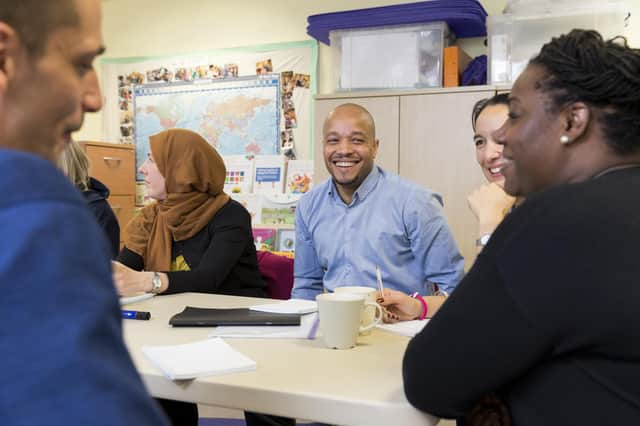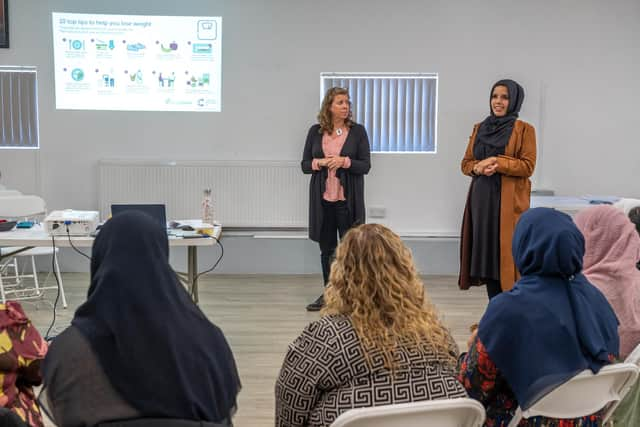Cancer Research UK: learn how to talk about cancer and help people access reliable information and support


In terms of health awareness, one group of caring professionals is tackling the issue head-on and making a tangible difference when it comes to reducing inequalities.
The Talk Cancer training programme, run by Cancer Research UK (CRUK), aims to give people the confidence to start life-saving conversations about cancer in their communities.
Breaking down barriers


By talking openly about vital issues, such as the importance of early diagnosis and screening programmes, the training sessions can break down some of the barriers that stop people getting useful health information and services.
The awareness training is delivered by experienced nurses, in a workshop format, to community-based groups who are able to pass on relevant messages to local people. And if those messages need to be shared in a particular way to maximise their impact, then Talk Cancer is keen to show you how.
Nurse Lead Gill Kilgour explained: “Health inequalities can involve a lot of things including language, ethnicity, gender or living in a certain area, especially one that’s deprived.
Deprivation link to cancer
CRUK estimates that more than 30,000 extra cases of cancer each year are linked to deprivation. People living in these areas generally have a higher prevalence of cancer risk factors, are less aware of symptoms, report more barriers to seeking help and less likely to take part in screening programmes.
Talk Cancer prioritises training in places where people are most affected by the disease and works in partnership with a variety of organisations to improve outcomes and awareness.
Interpreted workshops
To help reduce health inequalities, Talk Cancer are now offering workshops in any language, through the use of interpreters. These interpreted workshops will help reach key groups in communities that face additional barriers to accessing health information due to language. A pilot scheme included delivering the interpreted workshops to South Asian communities in Urdu and Punjabi as well as people who use British Sign Language.
“Reaching as many people as possible to start these conversations, dispel myths and signpost to appropriate services can all make an important difference,” added Gill.
Book a training workshop
Talk Cancer has already trained thousands of people UK-wide and is always keen to hear from those in community roles who want to learn more.
For more details about the programme or to book a workshop, ring 020 3469 8111, email [email protected] or visit www.cruk.org/talkcancer
Some groups are eligible to receive a free session and can use the online eligiblity checker to find out.